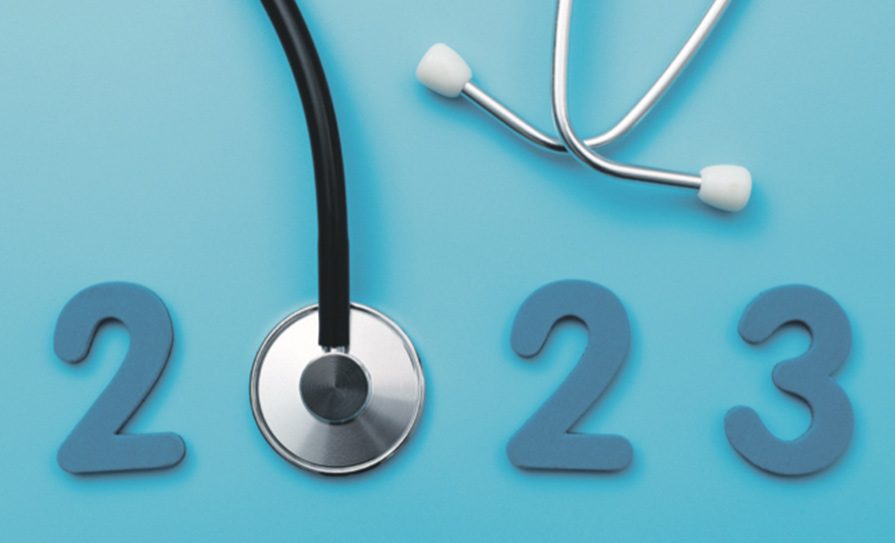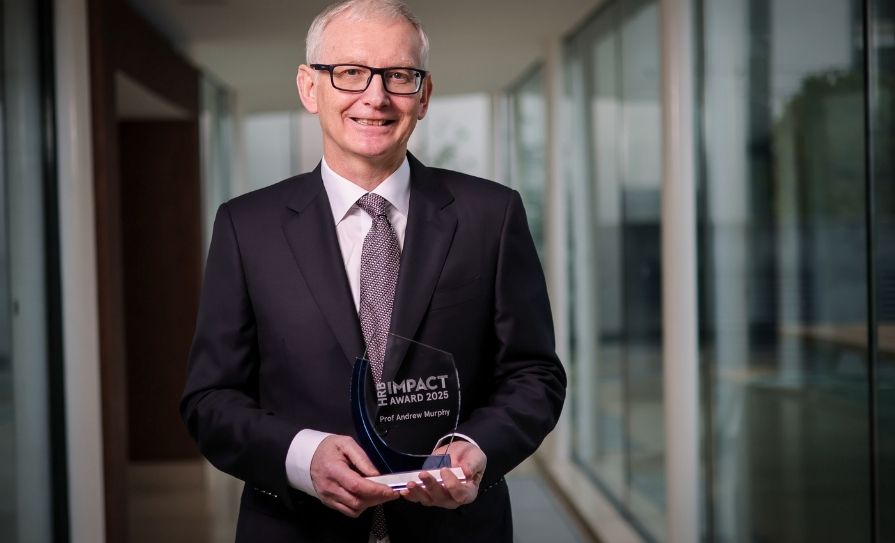The Medical Independent presents a round-up of health news and views during the past 12 months
January
A total of 11,289 patients waited on trolleys in hospitals during the first month of the year, show figures compiled by the Irish Nurses and Midwives Organisation (INMO).
Minister for Health Stephen Donnelly receives Government approval to establish an interdepartmental working group to examine the rising cost of health-related claims and consider mechanisms to reduce costs. The group is expected to produce a report in early 2024.
The Medical Independent (MI) reports that the Medical Council will spend approximately €2.6 million on renovations at its rented headquarters, Kingram House, Dublin (the Council later issues a revised final cost of over €3.3 million).
February
Speaking to MI at the National Health Summit in Croke Park, IHCA President Prof Robert Landers argues the new consultant contract will lead to a “gradual change, not a big bang” in the health service.
“We are undertaking a consultation feedback process [with IHCA members] and then we are providing our feedback to the Department looking for minor modifications within that contract,” Prof Landers says.
MI also reports that the board of Beaumont Hospital in Dublin had embarked on a significant governance compliance project amid concerns that appropriate board oversight of hospital activities was not in place.
March
The new public-only consultant contract 2023 (POCC23) becomes operational on 8 March.
The 2023 Waiting List Action Plan is published. The 30 ‘actions’ in the plan focus on delivering capacity, reforming scheduled care, and enabling scheduled care reform, according to the Department.
“While the Government recognises that acute hospital scheduled care waiting lists are far too long, and that many patients are waiting an unacceptably long time for care, we are beginning to see progress,” Minister Donnelly says upon the launch of the plan.
Mr Bernard Gloster takes up the position of HSE CEO.
April
Dr John Cannon becomes the new IMO President at the Organisation’s AGM in Killarney, Co Kerry, which takes place on 13-16 of April.
The GP meeting hears continued concerns about the planned expansion of ‘free GP care’ to children aged six and seven and to all of people earning no more than the median income.
During his presentation to the meeting, new Chair of the IMO GP committee Dr Tadhg Crowley says GPs have questions over “the policy-making rationale” of the eligibility expansion and the “accuracy” of the Government’s projections.
“There is no clarity on the numbers and assumptions are being used. The number could be anywhere between the Government estimate of 430,000 (including those aged six and seven) and 800,000.”
May
Minister Donnelly and Chief Medical Officer Prof Breda Smyth welcome the World Health Organisation’s declaration that Mpox no longer constitutes a global public health emergency.
The HSE launches a new model of care for dual diagnosis to set out “clear and integrated care pathways” for people with coexisting mental health and substance misuse conditions.
As reported in MI, RCPI President Prof Mary Horgan criticises the level of funding provided to the College for specialist medical training in the context of increasing trainee numbers. Prof Horgan makes her comments at a conference on the future of medical training organised by the Forum of Irish Postgraduate Medical Training Bodies on 31 May.
June
Minister Donnelly confirms a significant increase in the number of GP training places, which will rise to 285 in July 2023 (up from 258 in 2022) and 350 in July 2024. ICGP CEO Mr Fintan Foy welcomes the announcement, adding: “The workforce and workload crisis in general practice is affecting patients who have to wait longer to see their GP, as well as thousands of patients who are unable to register with a GP practice. We need more GPs and this increase in training places is a significant measure to enable more doctors to become GPs here in Ireland.”
July
The HSE publishes the outcome of two separate investigations undertaken following a serious sexual assault of a resident (pseudonym Emily) at a HSE community nursing unit in April 2020. A HSE staff member was convicted of the rape of Emily and sentenced in July 2020. An investigation by a safeguarding team finds reasonable grounds for concern in relation to physical or sexual abuse in relation to 21 past or current residents, among other findings. The HSE says the concerns have been managed in line with safeguarding policy and reported to the gardaí.
The final review of HSE child and adolescent mental health services (CAMHS) is published by the Mental Health Commission and confirms serious ongoing deficits.
Dr Patricia Byrne, Chair of the Faculty of Child and Adolescent Psychiatry at the College of Psychiatrists of Ireland, calls for “immediate investment and development” in CAMHS to support transformation in the area. Minister of State for Mental Health and Older People, Mary Butler, says she is assured that immediate concerns have been addressed by the HSE. “The Department of Health looks forward to working with the HSE in the implementation of the Child and Youth Mental Health Service Improvement Programme.”
The Government publishes an implementation plan for the transition to six new health regions.
August
The extension of GP visit cards to children aged six and seven commences on 11 August.
A national shared care record (NSCR) will roll-out to “the first deployment area” in late 2025 under current HSE timelines, a spokesperson tells MI. The NSCR will be a digital solution that aggregates patient healthcare records from various electronic data sources.
September
Spinal surgery in Children’s Health Ireland at Temple Street receives national attention following revelations about the use of unauthorised implantable devices, among other issues, for procedures at the hospital. Taoiseach Leo Varadkar “guarantees” the independence of the commissioned review and that the final report will be published.
Writing in MI to preview the IHCA AGM and Annual Meeting, the Association’s President Prof Landers states the take-up of the new consultant contract has been “far slower” than the previous contract. A total of 293 consultants had switched to POCC23 by the end of August.
Changes to the income threshold make an additional 215,000 people eligible for GP visit cards.
October
On Friday 13 October, a memo from HSE CEO Mr Gloster states no new staff will be recruited next year except for approximately 2,000 posts where pre-existing commitments have been made. Plans to recruit an additional 7,000 staff will not proceed. The IMO states it is “appalled by the decision”. The embargo is imposed due to the financial difficulties faced by the Executive, which is expected to have a deficit of just over €1 billion at the end of 2023.
MI reveals the National Association of GP Co-ops has warned health management it can no longer provide out-of-hours services for patients who are not registered with a GP.
November
It is announced more than 1,000 consultants have signed the POCC23. The 1,056 total comprises 241 new-entrant consultants and 815 consultants who have switched from their previous contracts.
In the third expansion of the scheme this year, an additional 215,000 people are now eligible for GP visit cards.
A total of 11,493 patients, including 434 children, waited on trolleys in Irish hospitals in November, states the INMO.
The INMO’s executive council holds an emergency meeting regarding potential industrial action in relation to the HSE recruitment embargo.
December
Latest figures reveal the total waiting list is approximately 7.1 per cent behind the 2023 Waiting List Action Plan target.
The provision of termination of pregnancy services in five additional maternity hospital sites is announced.
A national rare disease steering group is formed. The steering group is tasked with developing a new rare disease plan for Ireland.













Leave a Reply
You must be logged in to post a comment.